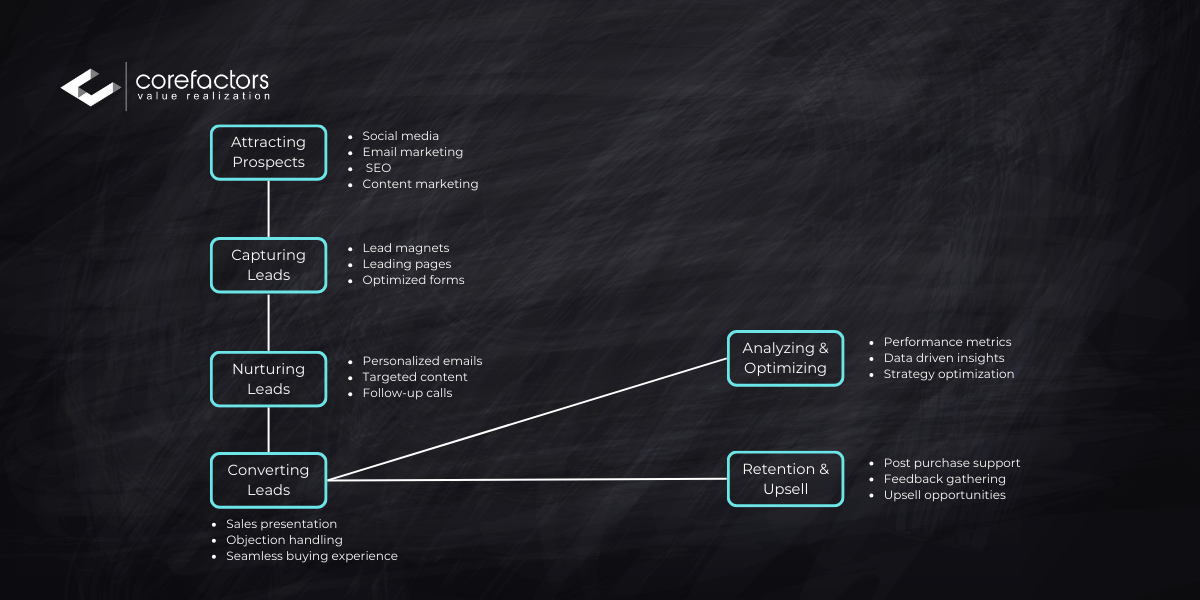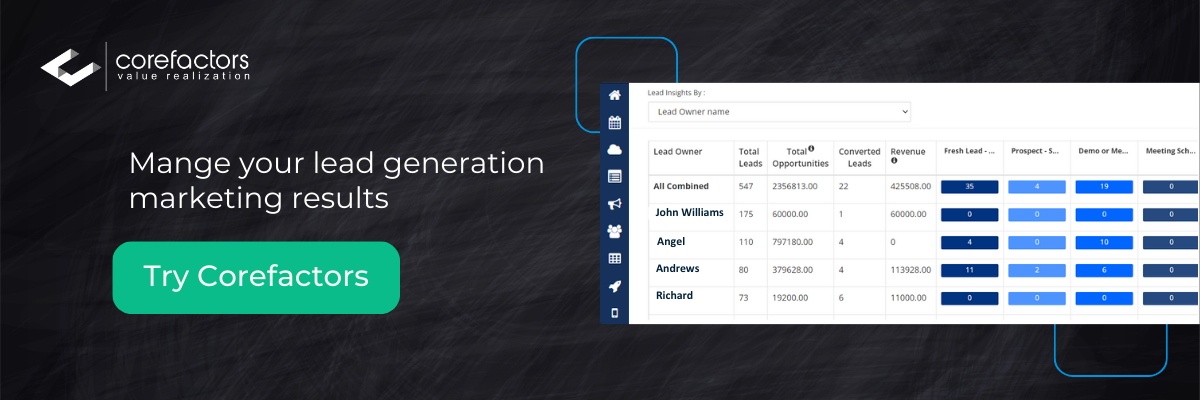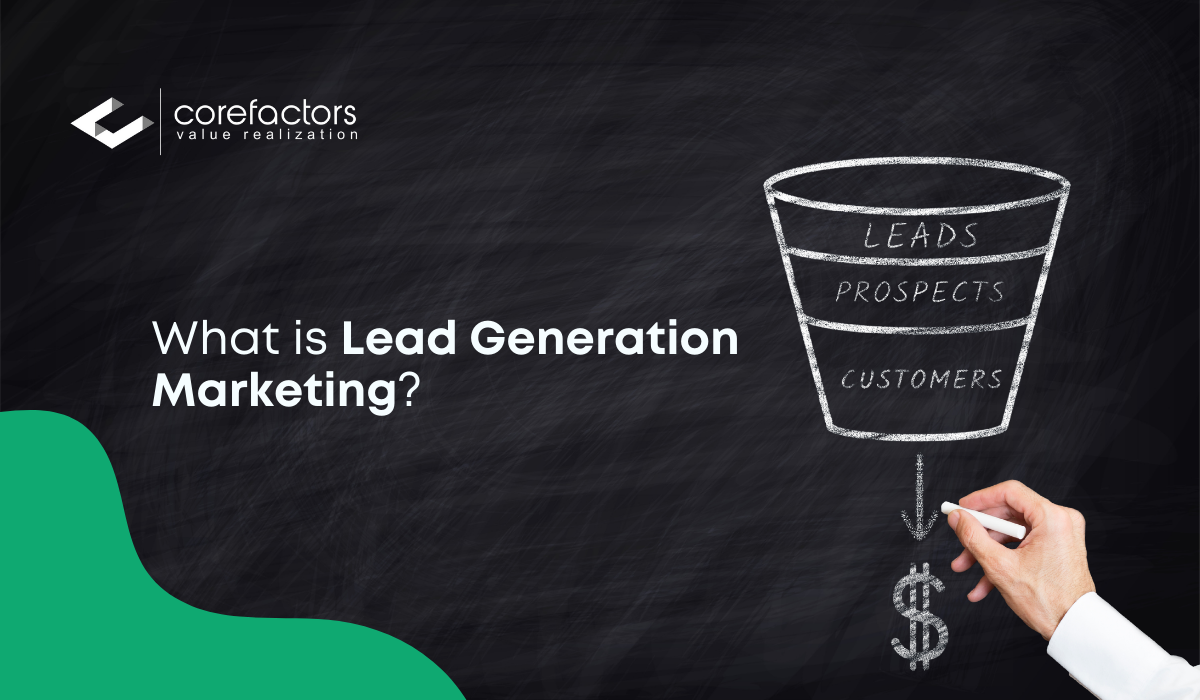Do you think you can transform strangers into interested potential customers for your business? Take your chance with lead generation marketing.
In this blog, we’ll dive into the essentials of lead generation marketing and share a few actionable strategies to help you get started. Our goal is to equip you with the nuances that not only attract potential customers but also build lasting relationships that drive business growth.
Understanding Lead Generation Marketing
Lead Generation Marketing is about turning curious browsers into engaged prospects who willingly share their contact details, allowing you to guide them through your sales funnel. Using a mix of smart strategies and tactics, you can nurture these leads, and build relationships and trust until they become loyal, paying customers.
It’s not about amassing a long list of contacts, but about gathering high-quality leads who are genuinely interested in what you offer. Additionally, by providing exceptional customer experiences, you can turn your satisfied customers into loyal advocates who generate new leads through referrals. This holistic approach ensures sustained growth and a robust customer base.

The Importance of Lead Generation
Lead generation is crucial for several reasons:
- Effective lead generation directly boosts the number of potential customers, driving higher sales and revenue.
- Targeted lead generation campaigns are more cost-effective than broad advertising, delivering a higher return on investment (ROI).
- Tracking leads provides valuable data about your target audience, refining marketing strategies and enhancing customer engagement.
In essence, lead generation fuels business growth, maximizes marketing spend, and deepens understanding of customer needs.
The Lead Generation Process
The lead generation process typically involves the following steps:
- Attracting Prospects: Using various marketing channels such as social media, email marketing, SEO, and content marketing to draw in potential customers.
- Capturing Leads: Implementing lead magnets like eBooks, webinars, and free trials to entice prospects to share their contact information.
- Nurturing Leads: Engaging with leads through personalized email campaigns, targeted content, and follow-up calls to build relationships and move them through the sales funnel.
- Converting Leads: Turning qualified leads into paying customers through effective sales strategies and excellent customer service.

Strategies for Effective Lead Generation
- Content Marketing
Lead generation revolves around content. High-quality, valuable content attracts prospects and encourages them to engage with your brand. Informative blog posts, engaging videos, comprehensive guides, and interactive content like quizzes and infographics can capture the interest of potential customers and guide them to your lead capture forms.
Content that addresses the needs and pain points of your audience, positions your business as a trusted authority, increasing the likelihood of converting leads into customers.
2. Search Engine Optimization (SEO)
SEO ensures your content reaches the right audience. By optimizing your website and content for search engines, you can increase organic traffic and attract high-quality leads. Effective SEO strategies include using long-tail keywords, optimizing on-page elements, creating high-quality backlinks, and regularly updating content to stay relevant.
For instance, to increase the visibility of your insurance company, keep these in mind :
- Long-tail Keywords: Use terms like "affordable car insurance in Boston" or "best home insurance rates in Atlantis.
- On-Page Optimization: Ensure titles, meta descriptions, and headers include relevant keywords
- High-Quality Backlinks: Partner with financial blogs or local business directories to link back to your site.
Local SEO tactics can also be employed to target prospects in specific geographic areas, enhancing the relevance and effectiveness of your efforts.
You can try location-specific keywords and also have your business in Google by business with your business information, location, updates, and reviews.
These tactics enhance relevance and effectiveness, driving organic traffic and targeted leads.
3. Social Media Marketing
Social media platforms are excellent for engaging with potential customers and driving organic traffic to your website. Creating compelling social media content and running targeted ads can help you reach a broader audience and generate more leads.
Facebook Lead Ads, Instagram Stories, and LinkedIn InMail are some of the tools that can significantly enhance your lead generation efforts. Engaging with your audience through comments, shares, and direct messages helps build relationships and trust, which play a crucial role in converting your leads into customers.
4. Email Marketing
One of the most effective lead generation strategies of all time. Personalized, relevant emails can nurture prospects through the sales funnel and convert them into customers. By segmenting your email lists based on user behavior and preferences, you can send targeted campaigns that resonate with each of your recipients.
Automated email workflows and drip campaigns keep your audience engaged and informed, helping to build strong relationships over time. Crafting compelling subject lines and providing valuable content within your emails can significantly improve open and click-through rates.
5. Lead Magnets
Offering lead magnets such as free trials, eBooks, and webinars can significantly boost your lead generation efforts. These incentives encourage prospects to share their contact information, allowing for targeted follow-up marketing campaigns.
Lead magnets should be highly relevant to your audience's interests and provide immediate value. Interactive tools like calculators and templates, exclusive access to industry reports, or discounts on products and services can also serve as effective lead magnets, attracting high-quality leads who are genuinely interested in what you offer.
6. Customer Relationship Management (CRM) Systems
Using a CRM system to track and manage your leads can streamline your lead generation efforts. A CRM system allows you to monitor interactions with potential customers, segment your audience, and automate follow-up processes.
By maintaining detailed records of each lead's journey, you can personalize your outreach and improve your chances of conversion. Integrating your CRM with other marketing tools ensures a seamless flow of information and enhances the effectiveness of your lead generation strategies.

7. Landing Pages and Conversion Optimization
Creating dedicated landing pages for your lead generation campaigns can significantly improve conversion rates. These pages should be designed with a clear call to action (CTA), compelling headlines, and persuasive content that encourages visitors to provide their contact information. A/B testing different elements on your landing pages, such as headlines, images, and form fields, can help optimize performance and increase lead capture rates.
Measuring Lead Generation Success
To ensure your lead generation efforts are effective, it's essential to track and analyze key metrics. Some important metrics to monitor include:
- Conversion Rate: The percentage of visitors who become leads.
- Lead Quality: The potential value of leads based on criteria such as demographics and engagement.
- Cost Per Lead (CPL): The average cost of acquiring a lead.
- Lead-to-Customer Conversion Rate: The percentage of leads that convert into paying customers.
By analyzing these metrics, you can identify areas for improvement and optimize your lead generation strategies for better results.
The Future of Lead Generation Marketing
As technology continues to evolve, so too will lead generation marketing. Artificial intelligence (AI) and machine learning (ML) are already transforming the way businesses work. AI-powered tools can analyze vast amounts of data to identify high-quality leads, predict customer behavior, and personalize marketing campaigns.
Additionally, the rise of voice search and virtual assistants presents new opportunities for lead generation. Businesses that optimize their content for voice search now, can capture leads from this growing channel and stay ahead of the competition.
Generate Leads the Smart Way with CoreFactors
Lead generation marketing is a critical component of any successful business strategy. With the right approach, you can attract high-quality leads and maximize ROI.
The secret here lies in understanding your audience, offering valuable content, and constantly refining your tactics based on data-driven insights. Get, set and ready for your lead generation marketing strategy now.
Frequently Asked Questions (FAQs)
1. How do you attract high-quality leads?
Attract high-quality leads by targeting your marketing efforts, using SEO, creating valuable content, and leveraging social media. Understanding your audience and addressing their needs is crucial.
2. Do testimonials and case studies build trust with potential leads?
Testimonials and case studies provide social proof, showing potential leads that others have had positive experiences with your product or service. This builds trust and can influence their decision to engage with your brand.
3. How can businesses measure the success of their lead generation campaigns?
Success can be measured by tracking key metrics such as conversion rates, lead quality, cost per lead, and lead-to-customer conversion rates. Analyzing these metrics helps identify areas for improvement.
4. What is the role of marketing automation in lead generation?
Marketing automation streamlines lead generation efforts by automating repetitive tasks, ensuring timely follow-ups, and providing personalized communication. This increases efficiency and helps maintain consistent engagement with leads.
5. What are lead magnets and how do they work?
Lead magnets are incentives offered to prospects in exchange for their contact information. Examples include eBooks, webinars, free trials, and exclusive discounts. These tools encourage prospects to share their details, allowing you to follow up with targeted marketing campaigns.








